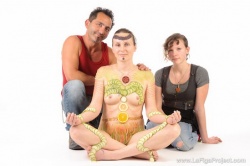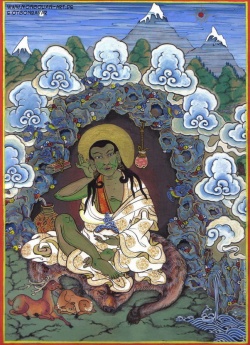Bak Full Moon Poya
Bak Full Moon Poya is very important in the Buddhist calendar due to a number of significant events in the life of the Buddha. After attaining Enlightenment at 35, the Buddha's intention was not only to travel from place to place and preach the Dhamma, but also to help people to solve their problems.
The Buddha was born for the sake of mankind. He was born not for a particular community, but for all people irrespective of their caste, creed or religion. He treated all alike. He was a great teacher who showed the right path to be free from suffering.
The Buddha visited Mahiyangana, Nagadeepa and Kelaniya on three occasions.
Buddha's second visit
It was on the Bak Full Moon Poya Day that the Buddha made his second visit to Sri Lanka. During the fifth year of his Enlightenment the Buddha saw with His divine eye that a dispute had arisen between two Naga kings Chulodara and Mahodara.
Mahodara was a king in Nagadeepa. His younger sister Thirachchika was married to a Naga king. Chulodara was their son. Thirachchika's father gave her one of his most valuable jewels – a gem-studded throne prior to his death.
According to the Mahavamsa, the Buddha appeared in the sky under the shade of a kiripalu tree to settle the dispute between Chulodara and Mahodara who were uncle and nephew. They were fighting over the ownership of a gem-studded throne.
A Deva named Samiddhi Sumana who dwelt in a Rajayatana (banyan) tree in Jetawana too had joined the Buddha during His visit to Nagadeepa. Buddhist history reveals that the Deva had uprooted the tree and held it like a parasol over the Buddha.
The Buddha arrived in Nagadeepa before the two factions of Nagas had launched themselves in to battle. The Buddha hovered over them in mid air, creating darkness over the battleground.
The Nagas were overwhelmed with happiness to see the Buddha who was hovering in mid air. They worshipped the Enlightened One. The Buddha preached to the Nagas to make them understand the evils of hatred.
Reference to Jataka stories
He preached the Dhamma making reference to Jataka stories such as Kaka Uluka, Phandana, Vattaka and Latukika that explain the disadvantages of dissension and restored harmony among them.
The Jataka stories showed the evils of hatred and the importance of living in harmony. Then Chulodara and Mahodara discarded their weapons and offered the gem-studded throne to the Buddha. The Enlightened One who was in mid air then alighted on earth and sat on the throne.
The Naga King Maniakkhika told the Buddha, “Thathagatha, if not for your arrival, we would have all been reduced to ashes”.
When he invited the Buddha to visit his kingdom in Kelaniya again, the Buddha remained silent indicating His acceptance of the invitation.
When the Naga king pleaded for an object of worship, the Buddha gave him the Rajayatana tree and the gem-studded throne. Maniakkhika planted the Rajayatana tree on that very spot as a mark of respect to the Enlightened One.
Nagadeepa Stupa which was built by Chulodara and Mahodara stands magnificently even today at Nagadeepa, which is 30 kms from Jaffna.
According to the stupa committee, thousands of devotees of all faiths visit the stupa every day.
Nagadeepa in Jaffna has become a common place of worship for devotees of all religions in Sri Lanka. Buddhist pilgrims visit Nagadeepa almost everyday and Hindus too visit the Kovil in the vicinity.

